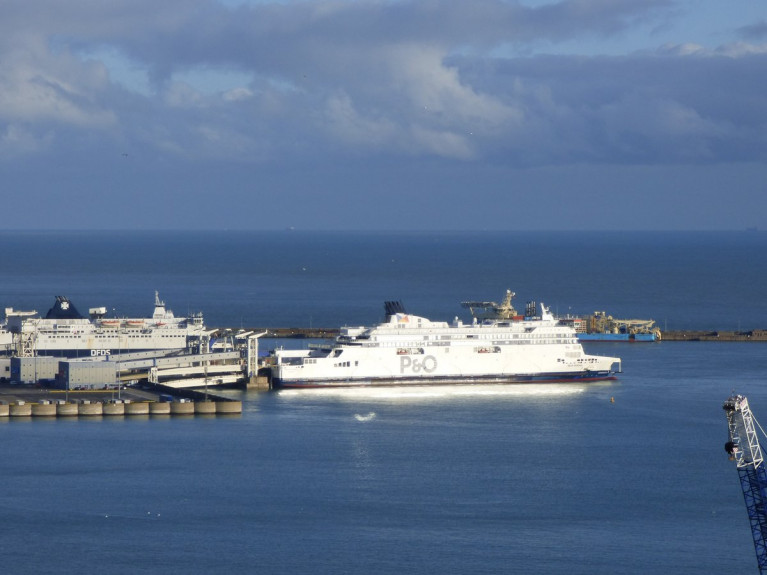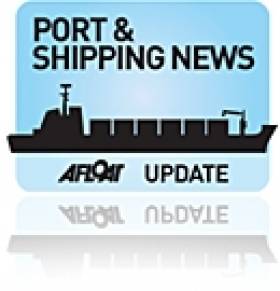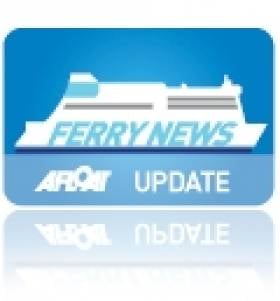Displaying items by tag: Competition Authority
In the UK, the competition regulator has launched an investigation into a capacity sharing agreement between P&O Ferries and DFDS.
In May, the two ferry operators entered a mutual space charter agreement on the Dover-Calais route in an effort to shorten freight customers’ waiting times.
The agreement was also intended to help improve the flow of traffic on the trade route between the UK and EU.
However, the Competition and Markets Authority (CMA) confirmed on Friday morning that it will now launch a probe into the move.
For more scroll down NorthWalesLive's coverage on the investigation.
Afloat adds the move by both ferry operators took place in the month prior to newcomer Irish Ferries debut in June onto the competitive premier short-sea link between the UK and France.
The Dublin based operator acquired a second cruise ferry from DFDS and which is scheduled to enter service on the UK-mainland Europe route early next month.
#ports – The Competition Authority has today published a study of competition in the ports sector in Ireland which found competition in port services could be improved. The study was commissioned by Minister for Jobs, Enterprise and Innovation, Richard Bruton, TD, as part of the Action Plan for Jobs 2012. The study looks at how competition is working between ports and within individual ports in Ireland.
The key findings of the study are:
The characteristics of the ports sector in Ireland mean that competition between ports is always going to be limited - principally for historical and geographical reasons.
Making sure that competition within a port is working well for each service provided within a port is therefore especially important.
The leasing and licensing arrangements for Lo-Lo (load on-load off) terminal operators in Dublin Port are too long and appear to restrict competition.
The current licensing arrangements for stevedore services in Dublin Port also appear to restrict competition.
More data collection and performance measures are needed for effective oversight of the ports sector.
As an island, Ireland is heavily dependent on its ports. Exports have been Ireland's only net contributor to economic growth in recent years. So ensuring that competition is working as well as it can and increasing Ireland's ability to trade internationally is vital. The Authority has made six recommendations aimed at improving competition in the ports sector.
Recommendation 1 – Leasing and licensing of Dublin Lo-Lo terminals: The way that leasing and licensing of Dublin Lo-Lo terminals is managed should be changed to substantially reduce the duration of the leases (sometimes over 100 years) and to change the way in which licences are automatically renewed.
Recommendation 2 – Stevedore licensing: In Dublin Port, at least two new general stevedore licences should be issued. General stevedore licences should be granted to applicants on a fair, reasonable and non-discriminatory basis, or through a tendering process. General stevedore licences should not be automatically renewable. Ports should not require applicants to demonstrate that they will attract new business to the port. Self handling licences should be granted by Dublin Port Company on a fair, reasonable and non-discriminatory basis. Where stevedore services are provided exclusively by the port directly, this should be clearly justified by the port authorities in question.
Recommendation 3 – Port closure and amalgamation: Policy focus should be on preserving competition and ensuring larger ports are operating efficiently and competing with one another. While port closures may result in lower administrative costs, they are unlikely to enhance competition among ports. The Authority recommends that the Department of Transport, Tourism and Sport should be required to seek the views of the Authority on any proposed port mergers, or that ports with turnovers below the existing merger thresholds should be designated as a class of merger that must be notified to the Competition Authority regardless of whether it meets the merger thresholds.
Recommendation 4 – Management models: The Department of Transport, Tourism and Sport should ensure that effective competition within ports is a key objective for port authorities.
Recommendation 5 – Investment in port-related road and rail infrastructure: It is unlikely that future Government investment in port-related road and rail infrastructure could be justified purely on the grounds of improving competition, and therefore any decision to invest in infrastructure in this context should be carefully considered.
Recommendation 6 – Data collection and performance measures: Data collection and port performance measures are vital in order to analyse the level of competition within the sector and to guide future policy-making. However this study has highlighted a lack of both. The Department of Transport, Tourism and Sport should prioritise the development of performance measures and data collection for the main ports.
Commenting on the report, Minister for Jobs, Enterprise and Innovation, Richard Bruton TD said, "A strong export performance will be crucial to the recovery in the economy and jobs market we are working so hard to achieve. That is why providing better supports and a better environment for exporters is at the centre of our Action Plan for Jobs. As part of this drive, I asked the Competition Authority to carry out a study on how competition in our ports sector can be improved, in order to make it easier and cheaper for our exporters to do business. The report produced today is an excellent piece of work, and Government will study its recommendations in detail and take appropriate action. This will ensure that we continue to improve the environment for exporters and support the growth in jobs and the economy we need".
Minister for Transport, Tourism and Sport, Leo Varadkar TD said, "The Competition Authority report into the ports sector is a thorough report and it complements the National Ports Policy which I published earlier this year. When I was in opposition, I was critical of how reports commissioned by the government of the time were published and then left on a shelf. I am determined to ensure this does not happen under the current Government. My Department will now consider these recommendations in detail and within six months will reply to the Competition Authority with a 'reasoned response' stating in each case whether we accept or reject the individual recommendations and explaining why."
Isolde Goggin, Chairperson of the Competition Authority, said, "This is the first comprehensive study of competition in the Irish ports sector. It should therefore be of benefit to providers and users of ports services and transport policymakers generally. I believe that implementing these recommendations will help to improve competition in the ports sector which plays a hugely important role in contributing to Ireland's competitiveness and economic growth. They will help to improve economic and consumer welfare as Ireland continues its path to economic recovery."
The full report is available to download below as a PDF attachment.
The Competition Authority is the State body responsible for enforcing Irish and European competition law in Ireland. Our mission is to ensure that markets work well for Irish consumers, business and the economy.
The Competition Authority and the National Consumer Agency are to merge to create a new organisation with a dual mandate to protect consumers and enforce competition law. Both organisations continue to operate and perform their statutory functions until the merger is given effect.
Irish Authorities Approve Stena / DFDS Merger
Of the two services, the Belfast-Liverpool (Birkenhead) is for passengers and freight while the and Belfast-Heysham port route is exclusively for freight-only users. To read more about the decision from the authority click here.
In February the UK's Office of Fair Trading (OFT) referred Stena AB's acquisition from DFDS A/S to the Competition Commission, conclusions on the report are not expected to be made until 25 July. To read more about the merger click here.
In the meantime the Belfast-Liverpool (Birkenhead) route continues trading under the name of Stena Line Irish Sea Ferries Ltd which is separately operated to Stena Line's other Irish Sea routes.
Sailings on the 8-hour route are run by the Italian built 27,510 tonnes ro-pax twins Lagan Seaways and Mersey Seaways which have been in service since the newbuilds were launched in 2005.
As the acquisition remains subject to regulatory clearance, passengers intending to travel on the route can continue to make bookings through the DFDS Seaways website by logging onto this link.
In addition the acquisition involved the sale of the South Korean built freight-ferries Hibernia Seaways and Scotia Seaways which operate Belfast-Heysham sailings.






























































